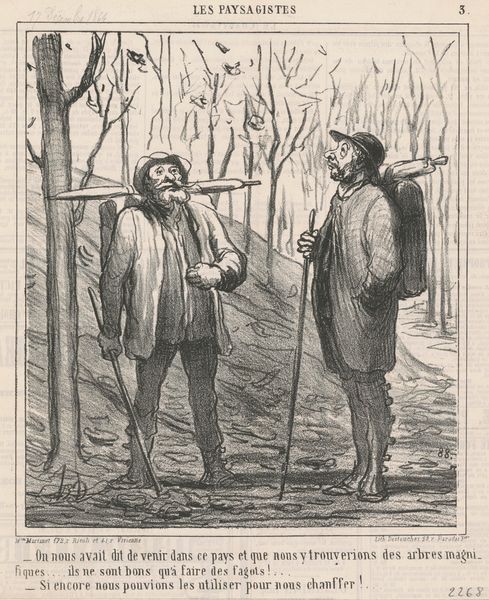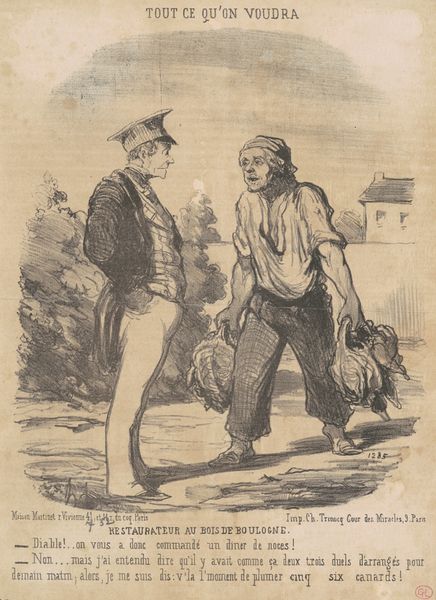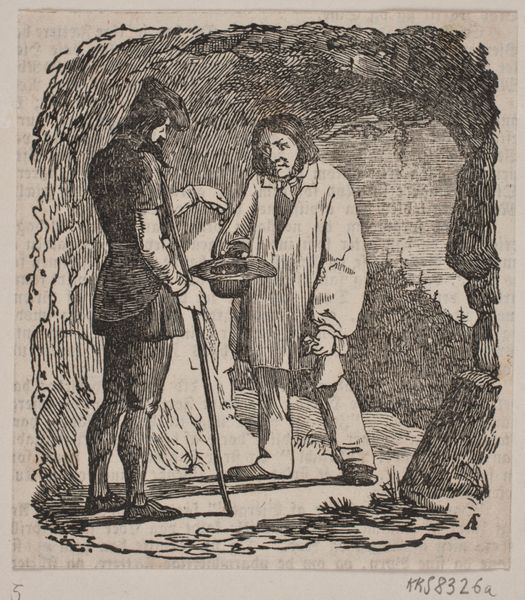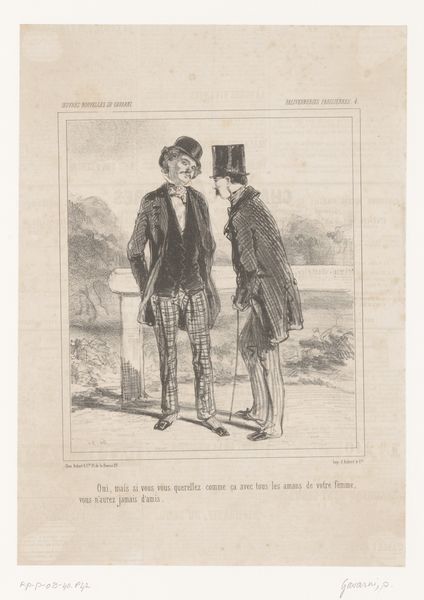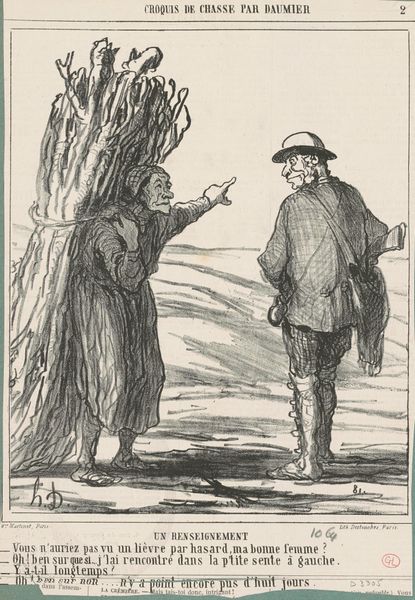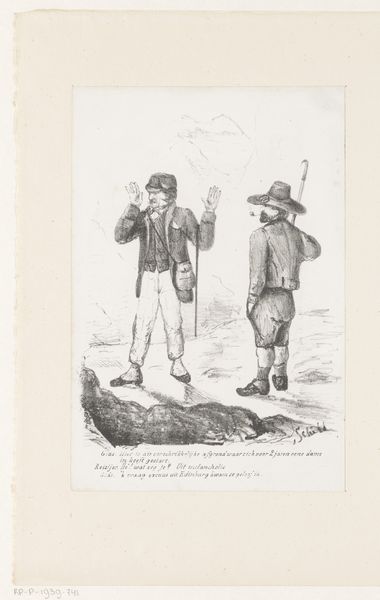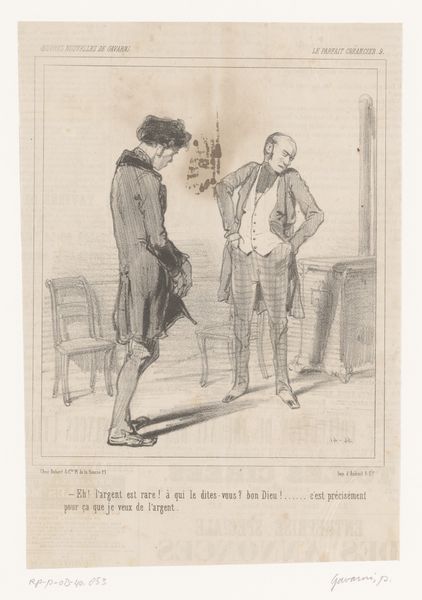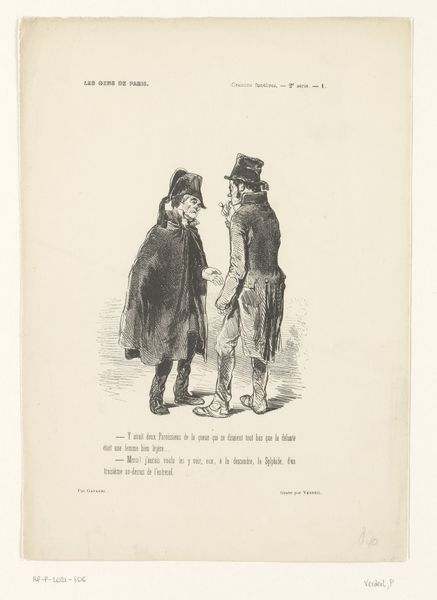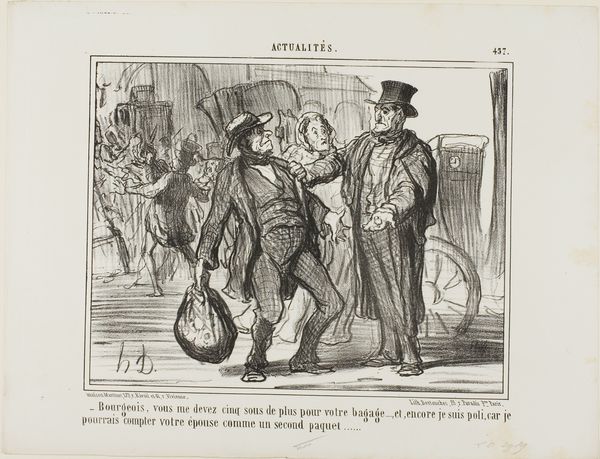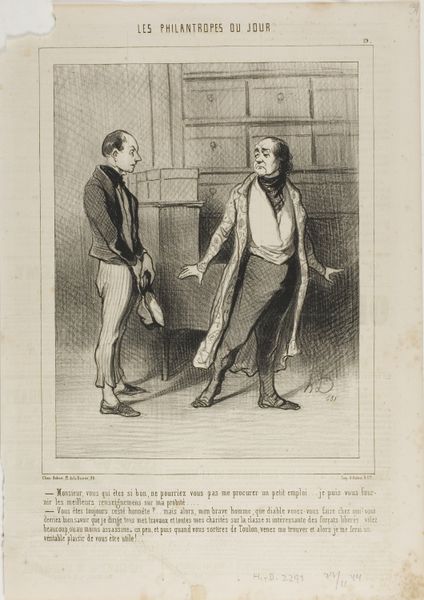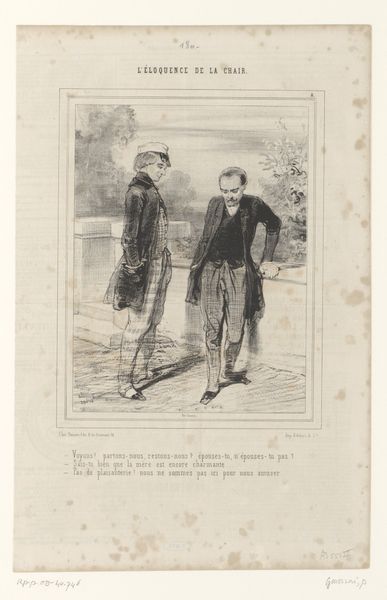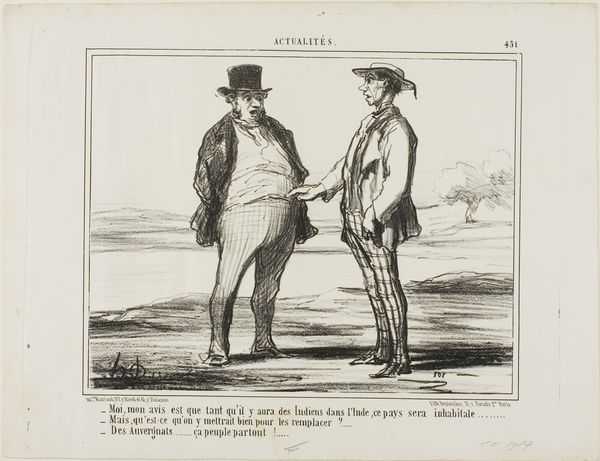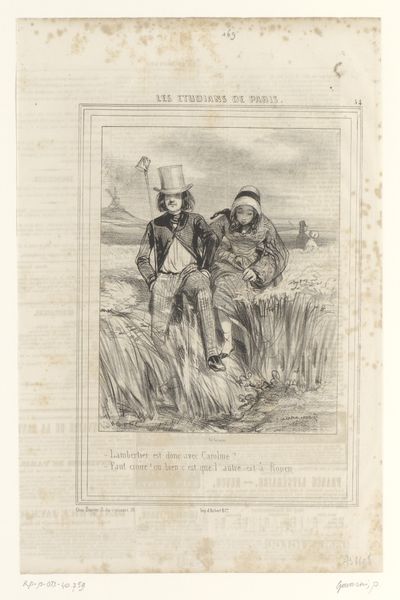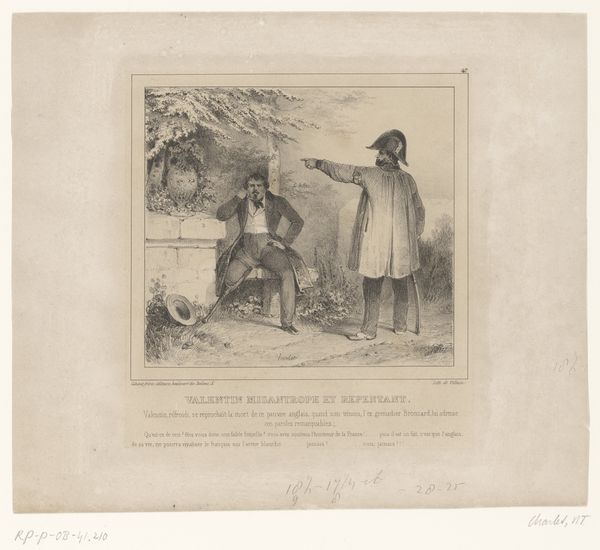
“- You seems to enjoy doing my work. In exchange I could offer doing your job: I will go for a ride in your coach!,” plate 249 from Les Parisiens A La Campagne 1865
0:00
0:00
drawing, lithograph, print, paper
#
drawing
#
lithograph
# print
#
impressionism
#
caricature
#
paper
#
genre-painting
Dimensions: 249 × 215 mm (image); 362 × 277 mm (sheet)
Copyright: Public Domain
Curator: This lithograph, titled "'- You seems to enjoy doing my work. In exchange I could offer doing your job: I will go for a ride in your coach!,' plate 249 from Les Parisiens A La Campagne" by Honoré Daumier, dates back to 1865. It resides here at the Art Institute of Chicago. What strikes you about it? Editor: Well, immediately, the scene appears to be tense, doesn’t it? There's a starkness in the black and white that gives it a slightly cynical air. And those facial expressions are, shall we say, characterful. Curator: Absolutely. Daumier was a master of social critique. Consider the title. It gives the visual context and also directly engages the narrative, providing a perspective into the relationship between city dwellers, the "Parisians," and those living in the countryside. He uses satire to expose the tensions between different social classes, right? The figures and the exaggerated language, which, in translation, mocks a possible swap of positions between people of different socio-economic classes… It’s dripping with irony. Editor: Precisely. Look at the body language. The figure leaning casually, almost mocking, contrasted with the other gripping his rake defensively. What could Daumier be hinting about how rural labor is perceived in contrast to city luxury, perhaps? Also the reference to the carriage--the caleche--speaks to the disparity in modes of experience between both these workers. Curator: And the artistic style reinforces that, too. While it has elements of impressionism, there is a powerful contrast. Daumier doesn't prettify or idealize anything. The lines are sharp and unforgiving, underscoring the social realities he's addressing. Think about his intended audience – largely middle-class Parisians consuming these images in newspapers. He's forcing them to confront uncomfortable truths. Editor: It's a powerful piece of social commentary, really, a kind of visual activism. You’re right to point out the unflinching lines, no flattery here. One can even imagine it sparking debates about fair labor and class dynamics that, sadly, resonate to this day. Curator: Exactly. Daumier forces us to confront persistent questions around economic and social justice, made more pertinent today through similar lenses in modern activism and artistic works, prompting questions about societal equity. Editor: Yes, and appreciating the socio-political background really makes you look at the print more critically. The initial sense of tension gives way to an awareness of the deep disparities still being critiqued today. Curator: Daumier’s wit invites both introspection and critical discourse around equality.
Comments
No comments
Be the first to comment and join the conversation on the ultimate creative platform.
